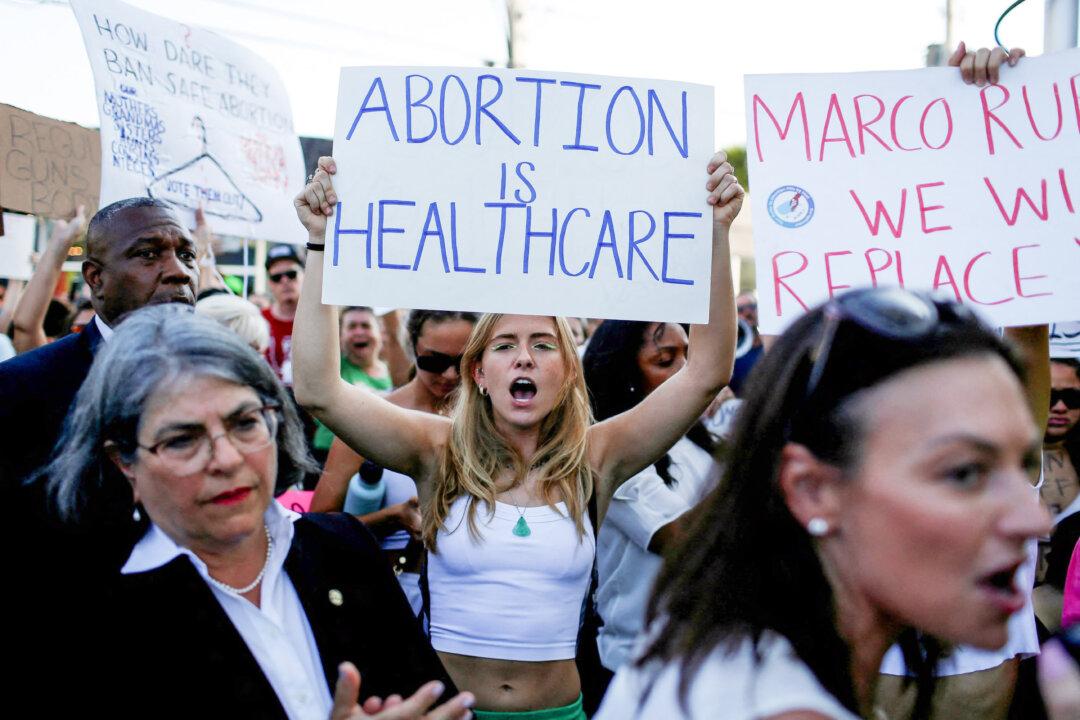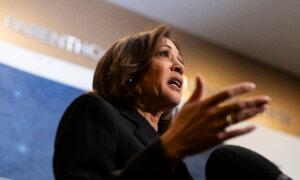Jeb Bush’s 1998 gubernatorial win put a Republican in Florida’s governor’s mansion for the first time since 1991, but it also marked the beginning of a trend that would shape the state’s politics for the next 25 years.
Prior to the late 1990s, the Democratic Party had a political stronghold in Florida. Between 1877 and 1967, every Florida governor but one—the Prohibition Party’s Sidney Johnston Catts—was a Democrat.
Before Mr. Bush’s victory in 1998, Republicans scored incremental victories and captured the state Senate in 1995 and the state House in 1997. Short of a few brief Democratic tenures in the offices of the attorney general, chief financial officer, and commissioner of agriculture, Republicans cemented their control of Florida’s government and won both of its seats in the U.S. Senate. No other Democrat has been able to replicate former President Barack Obama’s success when he won Florida’s 2008 and 2012 presidential elections.
Working against the odds and recent polling data, Democrats are now betting on flipping Florida to win the 2024 election against former President Donald Trump. And they are hoping abortion and marijuana will get them over the finish line.
“We definitely see Florida as in play,” Biden–Harris Campaign Manager Julie Chávez Rodríguez told reporters during a campaign call on April 2.
Three April 1 rulings from the Florida Supreme Court have Democrats eager to spend their growing financial resources in the hopes of churning out an unexpected statewide win for President Joe Biden, the campaign said in its April 2 call. Thus far, the Democratic National Committee (DNC) has purchased billboards in Arizona, Florida, Georgia, Michigan, Nevada, North Carolina, Pennsylvania, and Wisconsin that target President Trump on abortion.
The first Florida ruling will allow a constitutional amendment guaranteeing abortion access to appear on the November ballot after the sponsor, Floridians Protecting Freedom, secured enough petition signatures earlier this year.
The second ruling upheld a 15-week abortion ban that was signed into law by Gov. Ron DeSantis in 2022 after the U.S. Supreme Court’s Dobbs decision overturned Roe v. Wade. The ruling also paved the way for a six-week abortion ban to take effect on May 1 after Florida’s Supreme Court delayed it while waiting to rule on a challenge to the 15-week ban.
Abortion Ban and Cash Advantage
Democrats are hoping that Floridians passionate about abortion access will react to the twin rulings by showing up in greater numbers at the polls in November. The six-week abortion ban will have been in effect for six months by Election Day.Republican pollster Neil Newhouse is concerned by this scenario. He foresees stories of women struggling to get abortions in the state driving media coverage between now and the election.
“I think there’s gonna be an impact on the election. I’m not sure exactly what it is, but I don’t think we know what it’s going to be until there’s all this kind of round-up information [leading up to November],” Mr. Newhouse told The Epoch Times.
“Flipping the state is going to be a challenge. Putting it in play is certainly a possibility.”
Democrats also have a cash advantage over Republicans, according to late March filings with the Federal Election Commission.
The DNC raised $16.6 million in February and entered March with $26.6 million in cash on hand, compared to the Republican National Committee, which raised $10.7 million in February and entered March with $11.3 million on hand.
Democrats are already spending money in the state in hopes of doing the impossible. The DNC told The Hill on April 5 that it intends to buy billboards in the Tampa, Orlando, Miami, Fort Lauderdale, and Daytona Beach areas criticizing President Trump for taking credit for the Dobbs decision with his Supreme Court nominations.
“I hope Democrats get fooled again into allocating resources to Florida. Because it’s very expensive. And now it’s ours,” Rep. Matt Gaetz (R-Fla.) told The Epoch Times.
The DNC announced by email on April 13 that it would also buy billboards in Pennsylvania that target President Trump on abortion in both English and Spanish after doing the same in Arizona just days prior.
Whether these efforts will result in fewer Trump voters in Florida or other battleground states is yet to be seen. As Mr. Newhouse says, billboards are not always the most effective strategy.
“As a consultant to many political campaigns, I don’t think I’ve ever told a campaign, ‘Hey, yes, spend money on billboards.’ You got to make a difference,” he said.

Jim Lee from Susquehanna Polling told The Epoch Times that Democrats might have ulterior motives with their Florida spending campaign.
“I think this is kind of a Hail Mary pass, in my opinion, to try to maybe help the Trump folks spread resources and spend money where they shouldn’t have to spend money,” he said.
The Republican Party of Florida and the Florida Democratic Party did not respond to requests for comment.
Trump’s Florida Margins
Others are equally unsure about what effect abortion and marijuana will have on the race.“I think Trump’s margin in 2020 would be a big barrier for this plan in 2024,” pollster Mark Mitchell told The Epoch Times.
President Trump beat President Biden in Florida by 3.36 percent in the 2020 election, an increase from 2016 when he defeated former Secretary of State Hillary Clinton by just 1.2 percent.
As Mr. Gaetz notes, “Michael Bloomberg incinerated a fortune in Florida in 2020 only to see Trump win by an even larger margin.”

Mr. DeSantis also isn’t convinced that the abortion amendment, or the marijuana one, will be successful in November.
“Once voters figure out how radical both of those are, they’re going to fail. They are very, very extreme,” he told reporters during a bill signing event on April 4.
“Look at the weed one. For example, the weed one is not just decriminalized; it’s basically a license to have it anywhere you want. So no time, place, and manner restrictions. This state will start to smell like marijuana.”
To be clear, the state’s current medical marijuana regulations restrict patients from using marijuana outside their private residences. Public marijuana consumption is illegal in Florida and will likely stay that way even if the state legalizes recreational access.
But the governor went even further days later when speaking with Fox News’ “Sunday Morning Futures” on April 7, saying the state is firmly out of play for Democrats.
“We used to be a 1-point state, every election hung on how would Florida go; that is not true anymore. And I think that’s a good thing for the [Republican] Party,” he said.
However, “no party affiliation” and “minor parties” registration also grew from 2023 to this year, which are essential voting blocks for deciding presidential elections. It’s not clear if more of these voters lean left or right or which candidate they might prefer in a matchup between President Trump, President Biden, Robert F. Kennedy Jr., and the other “third party” candidates in the race such as Cornel West and Jill Stein.

The last time Democrats carried Florida was in 2012, when President Obama beat Sen. Mitt Romney (R-Utah) by just 0.88 percent. That year, Floridians overwhelmingly rejected Amendment Six, which proposed amending the state constitution to prohibit public funding for abortion and to prevent it from creating “broader rights to an abortion” than the U.S. Constitution. Roughly 55.1 percent of voters said no to Amendment Six.
Ballot Initiatives
Regardless, citizen initiatives for abortion amendments have been popular in multiple states since the Supreme Court overturned Roe v. Wade. The same could be said for recreational marijuana, although states throughout the country have been creeping closer to “adult use” marijuana legalization ever since Colorado was the first in 2012.In Ohio, voters enshrined abortion access into the state constitution in November 2023 with 56.8 percent of the vote.
Kentucky voters in 2022 rejected a constitutional amendment to ban abortion and any public funding for abortions in the state, and voters in Kansas did the same when presented with a similar ballot initiative the same year.
Before Ohio, voters in Michigan, Vermont, and California all supported constitutional amendments related to abortion access and contraceptives.
The abortion issue also allowed Democrats to retake control of Virginia’s General Assembly in 2023 after Gov. Glenn Youngkin discussed a 15-week abortion ban, which allowed liberals to rally around the issue in a prelude to the 2024 election.
But when it comes to Florida’s race, Democrats are not just betting on abortion; they’re also betting on marijuana.
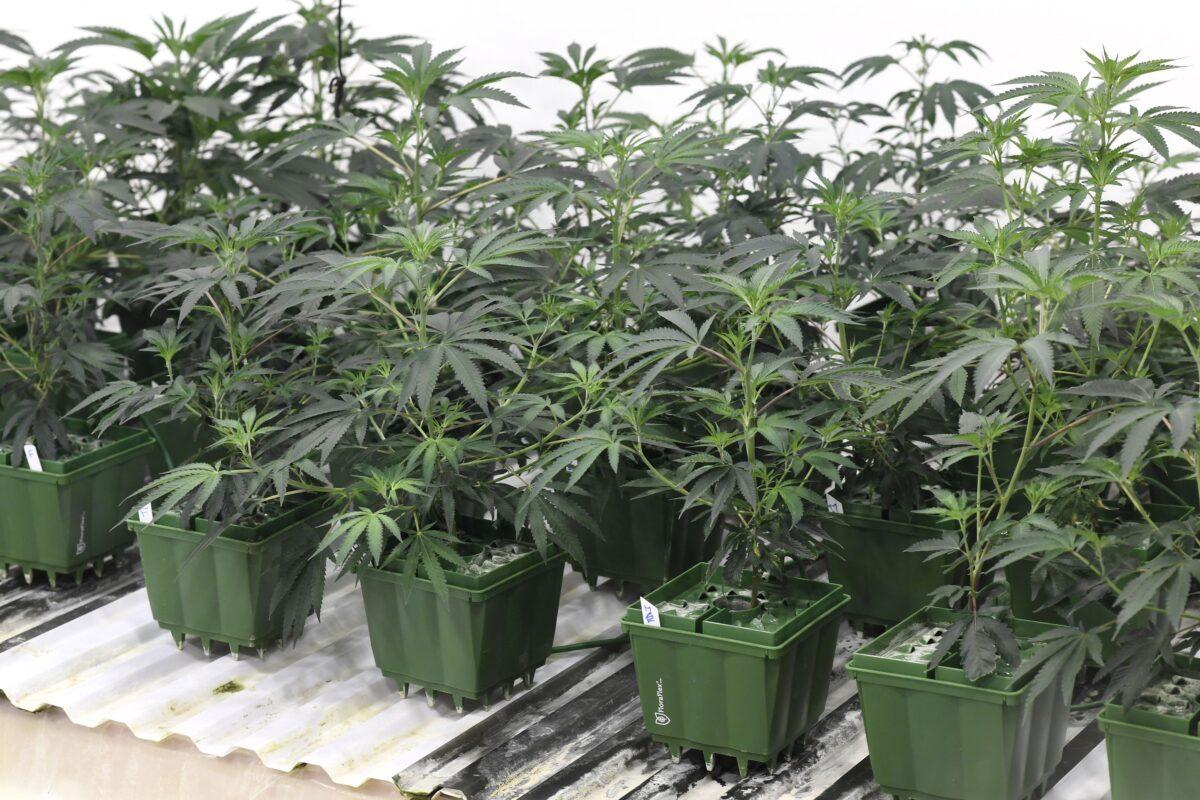
Floridians will have the chance to vote on recreational, or “adult use,” marijuana for the first time since the state overwhelmingly enshrined medical marijuana into its constitution in 2016.
Amendment Three, titled “Adult Personal Use of Marijuana,” would allow adults 21 years or older to “possess, purchase, or use marijuana products and marijuana accessories for non-medical personal consumption by smoking, ingestion, or otherwise.”
Marijuana is legal for recreational purposes in 25 U.S. states and available for medical use in 15 of them. However, the plant is illegal for possession and commercial sales in 11 states.
Previously, voters approved marijuana initiatives during elections in pivotal battleground states, such as Arizona, which approved recreational cannabis in 2020 with 60.03 percent of the vote.
Notably, President Trump won Arizona by a nearly 4-point margin over Ms. Clinton in 2016 but lost the state to President Biden in 2020 by less than a percentage point. It’s not clear what effect Arizona’s recreational marijuana initiative had on voter turnout in 2020 and the final election results.
It happened in Michigan in 2018 as well. That year, Michiganders voted to legalize recreational marijuana with almost 56 percent of support, while Democrats retook the governor’s mansion for the first time since 2011. They also won elections for lieutenant governor, secretary of state, and attorney general and gained five seats in both the state Senate and the state House of Representatives.
Further Impacts
But some don’t see marijuana affecting the presidential race, even if voters rally around the issue at the polls.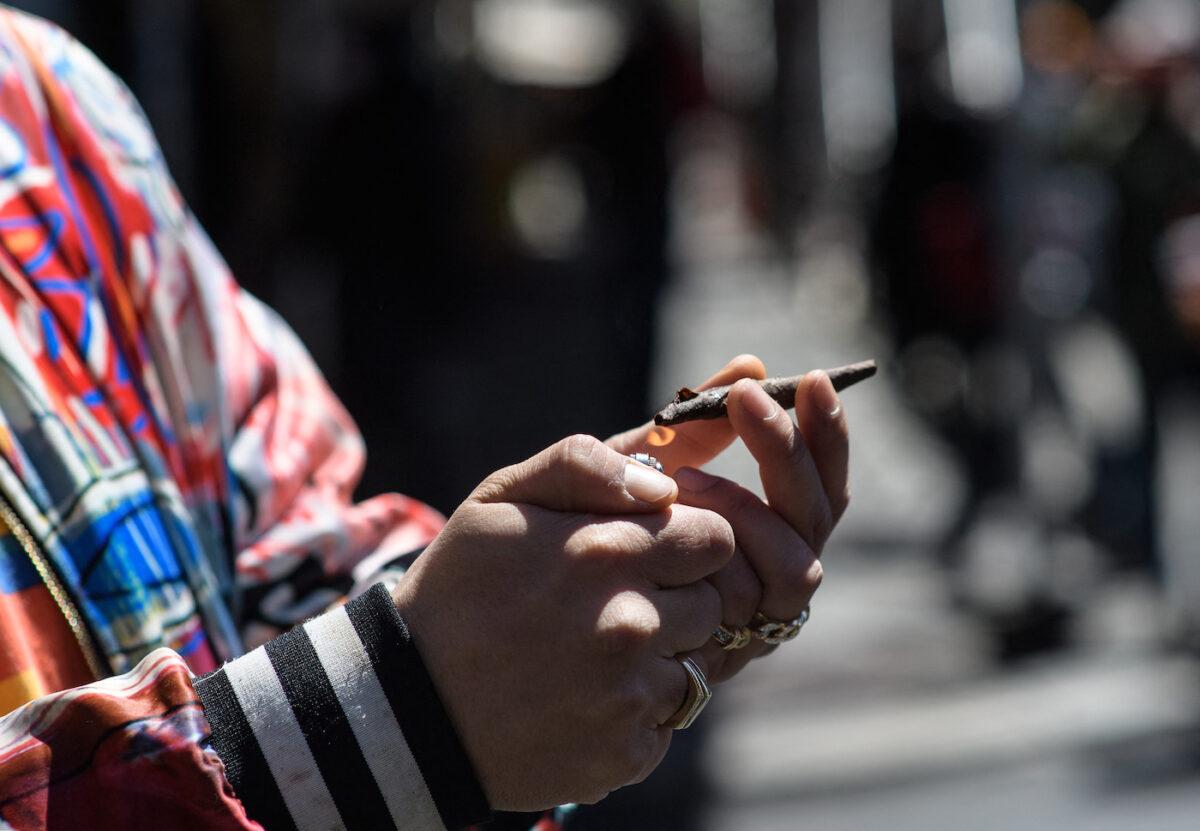
Daniel Cronrath, a political science professor at Florida State College at Jacksonville, told The Epoch Times that polling shows that more than 60 percent of Floridians support marijuana legalization and that there’s no direct association between this issue and presidential candidates.
Michael Thompson, the Republican Party Chair of Florida’s Lee County, feels the same way.
He told The Epoch Times that “the vast majority of Floridians want it” regardless of political affiliation.
Marijuana ballot initiatives don’t always translate to Democratic wins as well.
President Trump carried Montana by a margin of 16.4 percent over President Biden when the state legalized recreational marijuana in 2020 with almost 57 percent of the vote.
Republicans also retained their Missouri congressional seats when the state legalized recreational marijuana in 2022.
Polling data also suggests that marijuana legalization is becoming a bipartisan issue.
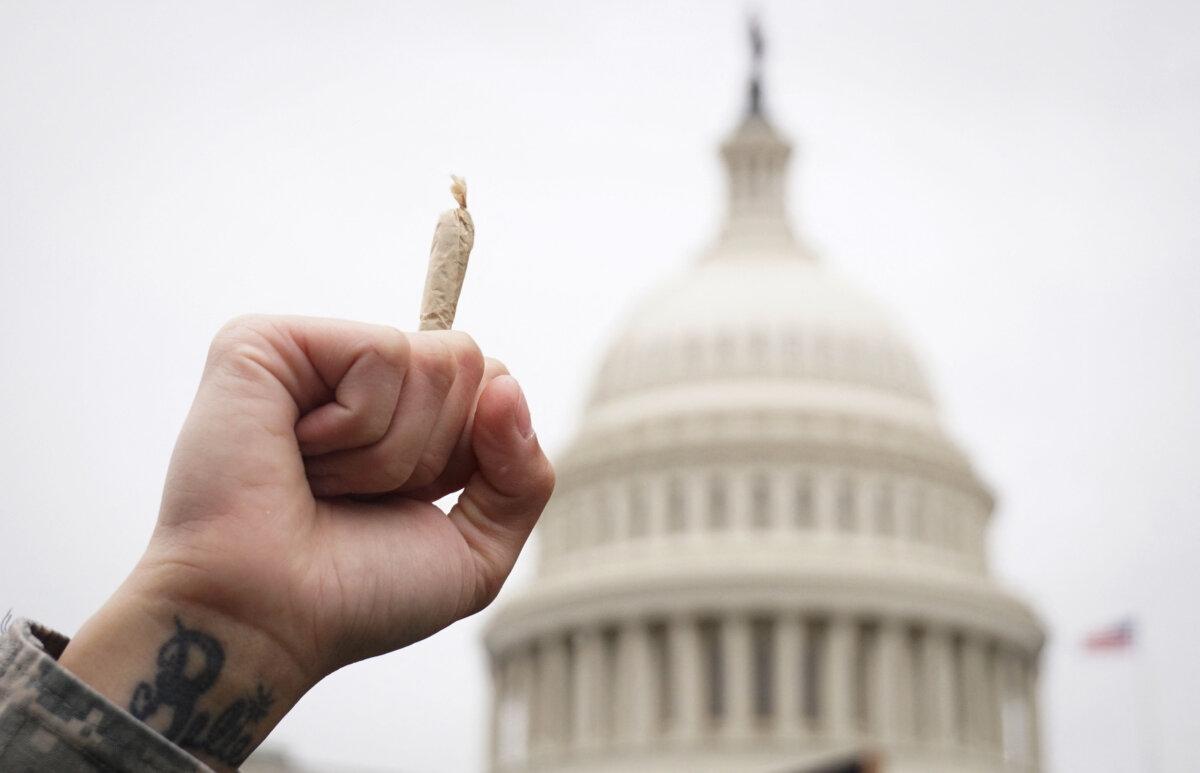
By contrast, 73 percent of Democrats and Democrat-leaning independents want both recreational and medical access to the plant, with just 21 percent favoring a medical system exclusively.
“[The] majority of Americans ... are warming up to the idea of legalization of recreational marijuana,” Mr. Lee said.
Political consultant Aron Solomon told The Epoch Times that he sees little impact from either abortion or marijuana on Florida’s presidential race.
The Issues That Matter
Polling puts the economy, inflation, immigration, and public safety as the “key four issues that Americans want action on,” Mr. Lee told The Epoch Times.Emerson College’s April 11 poll also suggests abortion may not be as central a concern for Floridians as Democrats hope.
Roughly 27 percent of Floridians said the economy—including jobs, inflation, and taxes—is the most critical issue facing the state in 2024. House affordability was the second most important issue at 15.9 percent, and immigration came in third at 14 percent.
Only 9.6 percent of Floridians polled said abortion was the most crucial issue in the state as they consider candidates for the presidential election. The poll did not include marijuana.
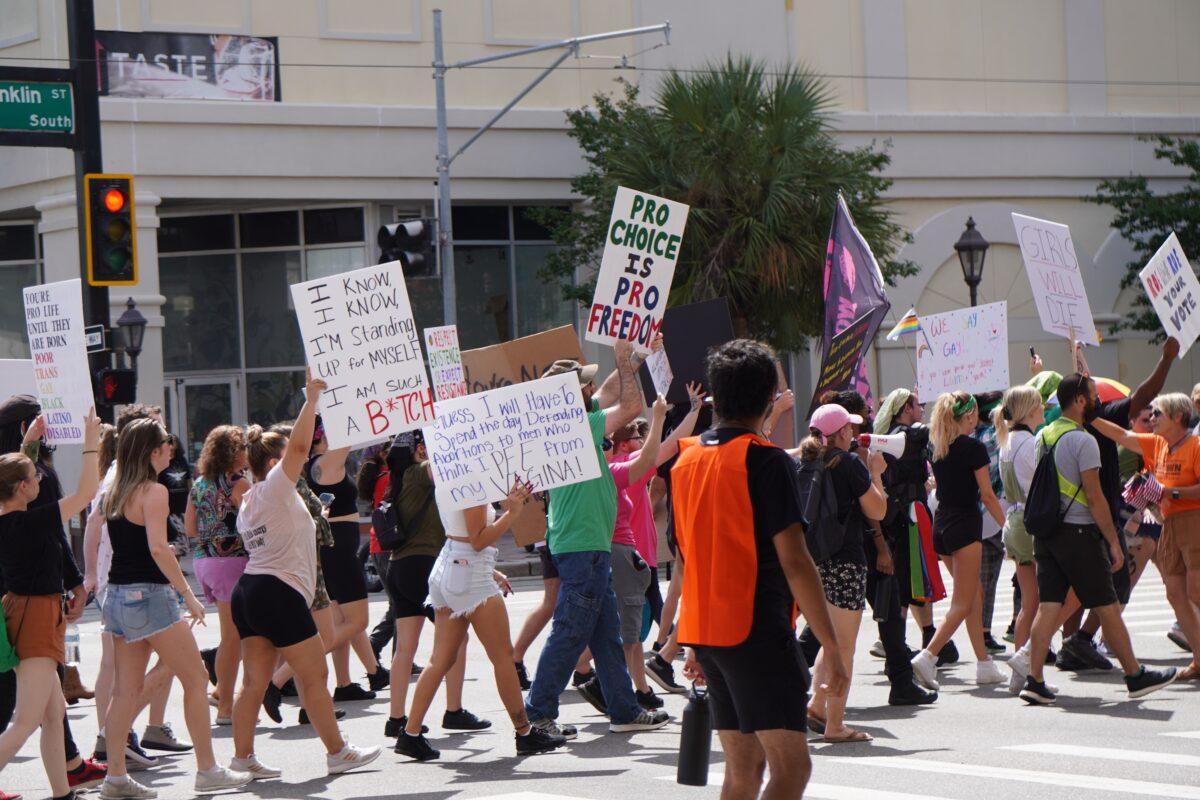
However, when asked about the state’s six-week abortion ban, more than 57 percent of respondents said the law was “too strict.” Even so, only 42.4 percent of respondents said they would vote for the constitutional amendment protecting abortion access, with 32.4 percent still unsure about the initiative.
Even if a majority of Floridians support the marijuana and abortion amendments, some say many of those voters will still back President Trump.
“I think at the end of the day, you‘ll see a fair amount of people splitting their ticket. They’ll vote Trump, and then they'll vote to codify abortion in the state constitution,” Mr. Lee said.
Mr. Cronrath concurs, saying the issues are not partisan enough to give Democrats an unexpected win in Florida.
“In terms of predictions, I would not be surprised at all to see both Amendment 3 and Amendment 4 in Florida pass while President Donald Trump continues to hold on and win the state,” he said.
More than 51 percent of respondents in Emerson College’s April 11 poll said they would vote for President Trump compared to almost 38 percent who said the same for President Biden.
If all 11 percent of undecided voters back President Biden in November, that would fall short of closing the gap between the two candidates. Still, a slim majority of undecided voters said they’re leaning toward President Biden.
Mr. Lee said the gap between the two presidents is much smaller than most realize in other battleground states, especially in Pennsylvania. He noted that pollsters in 2016 undercounted Trump voters because many people weren’t comfortable sharing their voting preferences, as the former president was criticized by his own party that year. However, this phenomenon has reversed itself in 2024, as Trump voters are more motivated and proud while Biden supporters are much less vocal.
While this could potentially tip the scales in other battleground states, Mr. Lee isn’t sure about Florida.
Still, some experts say a lot could happen between now and November.
“We can focus right now on the open southern border; we can talk about inflation. You know, there are a variety of issues that resonate, and we just don’t know what may happen between now and the election. ... There are so many permutations that can change the trajectory of the fall,” Mr. Cronrath said.
